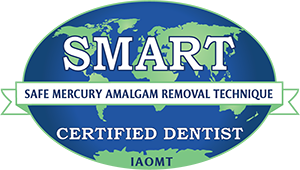Your Nightly Journey through the Four Stages of Sleep
August 3, 2022

Each time you fall asleep, your mind and body embark on a journey. They pass through four unique stages of sleep in Southlake, each of which plays a key role in ensuring that you derive maximum benefits from your rest. What happens during the various parts of the sleep cycle, and how can sleep apnea interfere with this important biological process? Let’s discuss the answer to these questions.
Stages 1 and 2: Light Sleep
As soon as you doze off, you enter stage 1 of the sleep cycle. Your breathing, heartrate, and eye movements all slow down. However, you might still be somewhat aware of your surroundings. If you are exposed to a loud noise or sudden bright light, you are likely to respond to such stimuli. You may not even realize that you had fallen asleep.
After 5 – 10 minutes or so in stage 1, you transition into stage 2. You become much less aware of your surroundings, your body temperature decreases slightly, and your eye movements cease. Your brain begins to emit a special type of wave, which are called sleep spindles. Most people spend about half of their total sleep time in stage 2.
Stages 3 and 4: Deeper Sleep
When you enter the third stage of sleep, you are officially in “deep sleep.” It becomes much more difficult to arouse you. Your body is busy repairing tissues that were damaged during the day, and your brain strives to consolidate new memories. Your cytokine levels also rise. (Cytokines are a type of protein that plays a key role in the immune system.)
After stage 3, you move into the fourth and final stage of sleep, which is often called rapid eye movement (REM) sleep. Your heartrate and blood pressure both increase, and your breathing becomes shallow. Your brain is still working hard to consolidate memories. The majority of dreams happen during REM sleep.
Sleep Apnea and the Sleep Cycle
An average individual passes through the entire sleep cycle in 1 – 2 hours, so the process gets repeated several times each night. Unfortunately, some people do not benefit from their entire sleep cycle despite spending 7 – 8 hours in bed. This is often due to sleep apnea in Southlake.
Sleep apnea causes multiple pauses in breathing throughout the night. In order for your body to resume breathing, your brain has to arouse you. This can prevent you from spending an adequate amount of time in the deeper stages of sleep. As a result, you may wake up feeling exhausted each day. Your emotions, memory, and overall health may also suffer.
If you believe you may be suffering from sleep apnea, it would be wise to start exploring treatment options. Many people find that a custom oral appliance is the most convenient and comfortable way to find relief.
The sleep cycle is a remarkable part of how the human body functions. Each stage of it plays a role in keeping you healthy!
Meet Dr. Thomas
Dr. Preetha Thomas is an experienced holistic dentist in Southlake. She is deeply interested in supporting the overall wellness of her patients and is proud to offer sleep apnea therapy. To learn more about how she may be able to help you enjoy rejuvenating rest, contact Enclave Dental at 817-912-1218.
No Comments
No comments yet.
RSS feed for comments on this post.
Sorry, the comment form is closed at this time.




